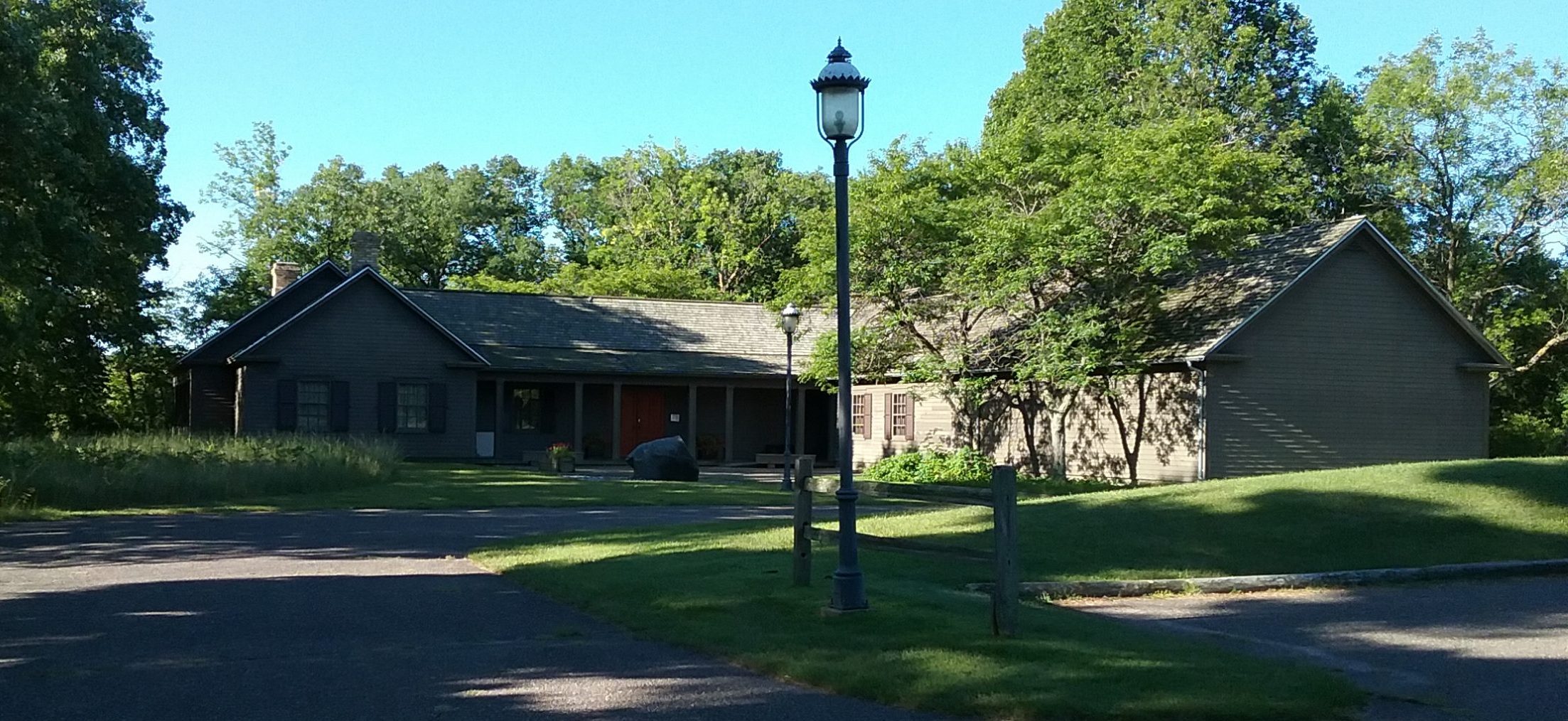
An essential tool for wild rice harvesting, the duck-billed push pole was used to move a canoe through the thick stands of rice that grow in Minnesota waters. The hinged metal “duck-billed” end of the long wooden pole helped the poler, the person handling the pole, find leverage in the murky lake or stream bottom where wild rice typically grows. The length of the pole, 12′ in this case, allowed the pole to be planted firmly so the canoe could be more easily pushed forward.
This particular pole came from Herter’s, a mail order business based in Waseca, Minnesota. Herter’s was a well-loved local sporting goods store that had a nationwide impact as the first outdoors gear supply company. A predecessor to today’s Cabela’s or Gander Mountain, the company was in business from the mid-1930s until it went bankrupt around 1980. Founded by George Leonard Herter (1911-1994) in his father’s dry good store, the business was legendary for its catalogs. Written largely by Herter himself, the catalogs were filled with bold claims and audacious often bombastic descriptions about product quality. It would be interesting to read how the duck-billed push pole was plugged.
